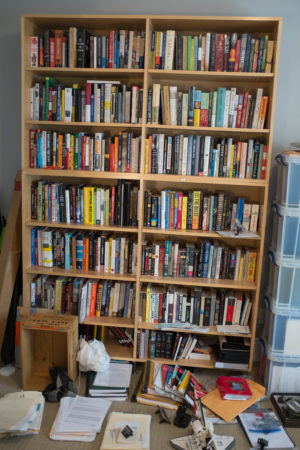It is hardly surprising that de la Boétie’s student essay, penned during the Renaissance, falls short of providing a complete or adequate theory of how and why human beings submit to tyrannical regimes. Nevertheless, some of his observations about human nature anticipate the framework of system justification theory, a social psychological perspective that seeks to elucidate the individual-level and group-level mechanisms contributing to people’s inability to see the true nature of the socioeconomic system, as in the Marxian concept of false consciousness. In addition to people’s blindness to their own oppression, a social system—any social system—can provide psychological benefits. Gramsci emphasized the popular tendency to experience “the existing social order” as a “stable, harmoniously coordinated system” (Fiori, 1970, pp. 106–107). According to system justification theory, people are motivated—often at a nonconscious level of awareness—to defend, bolster, and justify the social, economic, and political institutions and arrangements on which they depend. As the French historical archaeologist Paul Veyne (1992) observed, “the tendency to justify what exists constitutes one of the factors which combine to shape opinions” (p. 379)—including opinions about the legitimacy of hierarchy, inequality, and exploitation. The psychological tendency to justify what exists is, in a nutshell, the subject of this book.
Experimental studies, which will be revealed in some detail in subsequent chapters, demonstrate that when women, for instance, are made to feel especially dependent on the social system, they come to view gender disparities in politics and business as natural, desirable, and just. In other words, people are very good at making a virtue out of necessity, coming to accept (and even appreciate) the things they cannot change. For example, interviews with domestic workers in post-apartheid South African homes reveal that these women, most of whom were Black—far from seeing themselves as underpaid or exploited—saw themselves as lucky to be part of a symbiotic relationship with their wealthy white employers. Similarly, rather than blaming their problems on the social system, low-income Latinx and African-American mothers in the United States reported that poverty is caused by drug and alcohol abuse and other personal shortcomings of poor people. And despite significant disparities in income, education, employment, and health, low-status minorities in New Zealand—Māori, Asians, and Pacific Islanders—legitimize hierarchical group relations as much as, if not more than, members of the European majority.
Because it would be too painful to acknowledge that one is living in a state of injustice or exploitation, those who are disadvantaged may be motivated to distort and defend against certain realities by concluding that things are not really as bad as they seem. Psychological research suggests that this process of rationalization yields palliative emotional benefits for the individual insofar as it decreases negative affect and increases positive affect as well as satisfaction with the status quo, but it also undermines support for collective action aimed at changing the system. That is, individuals—including members of disadvantaged groups—who defend and bolster the legitimacy of the social system are less willing to protest on behalf of the disadvantaged than are those who question the system’s legitimacy.
Jost, John T. A Theory of System Justification. Harvard University Press, 2020. p. 3-4






